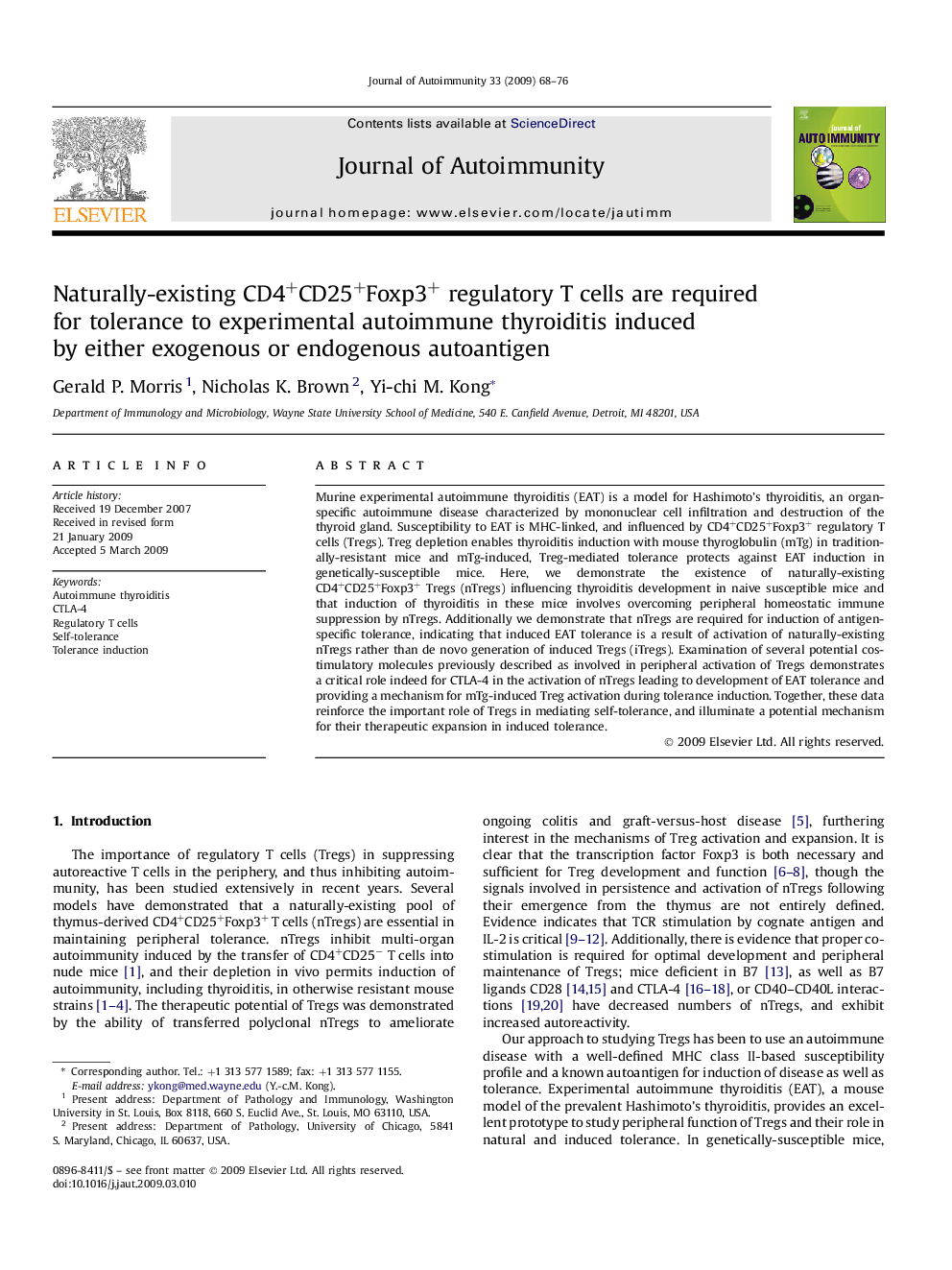| Article ID | Journal | Published Year | Pages | File Type |
|---|---|---|---|---|
| 3368110 | Journal of Autoimmunity | 2009 | 9 Pages |
Murine experimental autoimmune thyroiditis (EAT) is a model for Hashimoto's thyroiditis, an organ-specific autoimmune disease characterized by mononuclear cell infiltration and destruction of the thyroid gland. Susceptibility to EAT is MHC-linked, and influenced by CD4+CD25+Foxp3+ regulatory T cells (Tregs). Treg depletion enables thyroiditis induction with mouse thyroglobulin (mTg) in traditionally-resistant mice and mTg-induced, Treg-mediated tolerance protects against EAT induction in genetically-susceptible mice. Here, we demonstrate the existence of naturally-existing CD4+CD25+Foxp3+ Tregs (nTregs) influencing thyroiditis development in naive susceptible mice and that induction of thyroiditis in these mice involves overcoming peripheral homeostatic immune suppression by nTregs. Additionally we demonstrate that nTregs are required for induction of antigen-specific tolerance, indicating that induced EAT tolerance is a result of activation of naturally-existing nTregs rather than de novo generation of induced Tregs (iTregs). Examination of several potential costimulatory molecules previously described as involved in peripheral activation of Tregs demonstrates a critical role indeed for CTLA-4 in the activation of nTregs leading to development of EAT tolerance and providing a mechanism for mTg-induced Treg activation during tolerance induction. Together, these data reinforce the important role of Tregs in mediating self-tolerance, and illuminate a potential mechanism for their therapeutic expansion in induced tolerance.
